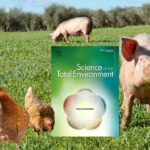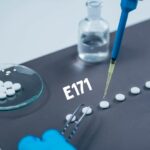
European assessment of titanium dioxide in cosmetics
The European Commission has asked the Scientific Committee on Consumer Safety (SCCS) to re-evaluate the safety of titanium dioxide (TiO2) in cosmetics, with regard to its genotoxicity in case of inhalation and oral exposure.
Among the types of cosmetics mentioned are: lip balms, lipsticks, toothpastes, powders and hair sprays.
This referral follows the concerns highlighted in May 2021 by EFSA regarding the potential genotoxicity of E171 (a food additive composed of titanium dioxide) and the submission, in May 2022, by an industrialist of a documented file supporting the safety of the non-nano (pigmentary) and nano forms of TiO2 in cosmetic products.
Several questions were posed to the SCCS:
- Is titanium dioxide safe in oral cosmetics?
- Should its previous opinions on inhalation and dermal exposure to titanium dioxide be revised? If so, what concentration limits does it recommend for each product category and type of use?
- What specifications does it recommend for titanium dioxide used in cosmetics?
- Does it have any other scientific concerns regarding the use of titanium dioxide in cosmetic products?
The SCCS has nine months to issue its opinion, which should therefore be finalized in March 2023.
Other news on the topic
Upcoming Nano Agenda

- Webconference for analysis laboratories, plant fertilizer manufacturers and distributors, public authorities…
- Moderated by David Krupka, nanotechnologies development manager at AFNOR Normalisation and Emilie Langlois-Bertrand, nantechnologies standardization project manager.
- In partnership with Armand Masion (CEREGE) and Patrice Charpentier (ANSES).
- This exchange will also be an opportunity to explore the creation of a national platform to identify standardization needs.
- Website: https://www.afnor.org/evenements/qualite/nanotechnologies-agriculture-cadre-pratique-responsable

- International conference on metallic nano-objects for experts working in the interdisciplinary field of metallic nanoparticles, with a particular emphasis on nanoparticle synthesis and characterization, plasmonics, optics and photonics, catalysis, biomedicine, electronics, and nanoparticle recycling
- Organizers / Partners: CNRS, Bordeaux University, Bordeaux INP, ICMCB, CRPP, CBMN, ISM
- Website: https://mno2026.sciencesconf.org
- Toxicokinetics: the fate of chemicals in the body” training course:
- the different routes of entry for toxic products
- the importance of toxicokinetics in preventing substance toxicity,
- xenobiotic absorption, distribution, metabolism and elimination
- nanoparticle toxicity
- Organizer: Association Toxicologie Chimie (ATC)
- Date: March 26, 2026
- Speaker: Nicole Proust (Research Engineer, CNRS Honorary Research Director, Palaiseau)
- Website: www.atctoxicologie.fr/…



